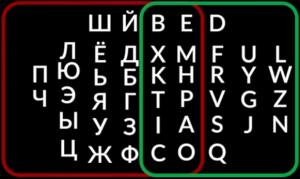I watch this stuff so you don't have to. In this case, a presentation by Dylan Beattie, at the NDC convention at the end of last year, on aspects of the encoding of text. I've covered several aspects of this in the past
- EBCDIC v ASCII
- early memory was expensive, so the boffins invented a code ASCII where all the letters, digits and punctuation any reasonable person would require were represented by 127 different bytes - each of 7 bits
- UniCode
- whoa the world cried: we too are reasonable people who want to write の β ç Д and 用
- indeed we have to write these or the instruction manuals will be ambiguous and people will die
- less than [<] dead
- indeed, incorrect encoding has killed Irish patients
- Ogham = ᚑᚌᚆᚐᚋ
- The world of representing the world [⚧ for example] in text is stranger than the doodz of the 1950s could have imagined.
but enough of the blob-back-catalog! we've read all that. What has Mr Beattie added to the debate?
One element of the NDC talk has become super topical since it was given 4 months ago. This concerned the 1968 UNESCO Vienna Convention on Road Traffic which among other things ventured to regulate cross border vehicle traffic. For people who ventured to take their cars abroad in the 1960s and 1970s one of the requirements was to put a conspicuous oval sticker on the back of your jalopie to tell everyone where you came from (IRL) for us (GB) for the Brits (F) for France. Apparently, the poor benighted GBrexiteers are going to have to pay £1.50 each to change their car-sticker from (GB) to (UK): to emphasise how much their government loves and respects their [Not Great Britainish!] citizens in NI.
At the other end of Europe there has been some posturing and face-saving. Apart from the sticker, signatories of the Vienna Convention, including USSR Russia and Ukraine are required to identify each car with a unique registration using only Arabic numbers and the Latin alphabet - no Cyrillic need apply. You can see why this might be handy in identifying the owner of vehicles which pitch over a precipice in the Alps or are accumulating parking tickets in Bratislava. Back in 1968 USSR, to the nearest whole number, no Soviet cars were allowed to cross the border so this requirement had no noticeable impact on Soviet licence plates. Seemingly, if you had [authorization] to drive from Moscow to Paris, you'd get issued with a set of offsite plates which you had to return to the Central Praesidium when you came back. I guess all bets were off for defectors.

No comments:
Post a Comment